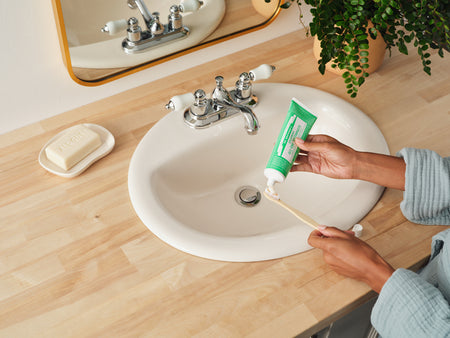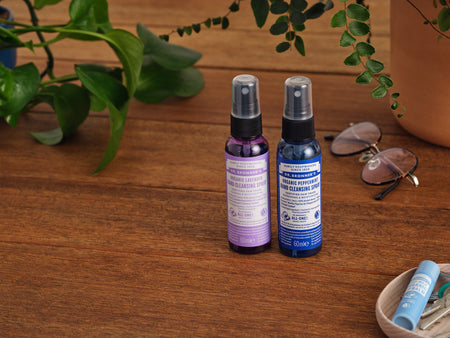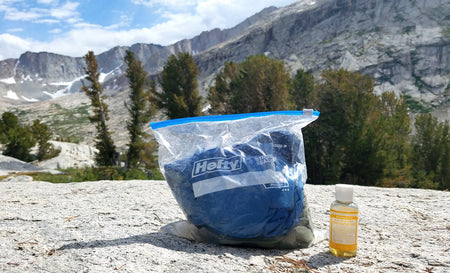Liquid soap vs. Bar Soaps
The pandemic has made us aware about the importance of washing our hands in order to prevent infection and the spread of germs.
Stores have been packed with all kinds of soaps, some of which are marketing themselves to consumers as organic and natural. This can leave consumers unsure of which soap is better for skin health and killing bacteria and viruses: bar soap or liquid soap?
The short answer: it depends, so keep reading in order to decide which one suits you the most.
Definition of soapThe bottle or bar of “soap” next to your sink likely isn’t real soap. The Food and Drug Administration (FDA) has a strict definition of what “soap” is, and it says that soap must combine fats or oils with an alkali such as lye. Most popular “soaps” on the market—both bar and liquid—are made from synthetic ingredients, so they don’t meet the definition of soap.
At Dr. Bronner’s, our products are made with organic and fair trade ingredients, without synthetic preservatives or detergents.
Is one more effective than the other?
When it comes to cleaning, there isn’t any difference between liquid and bar soap, it all comes down to the difference their ingredients.
So, it’s up to personal preference, as long as there are any cleansing ingredients in them, both will do the work just as fine.
This probably wasn’t the answer you were expecting, but trust me, just keep reading.
So which soap is better for your skin?
Let’s get to the heat of the matter, liquid soaps are usually better when it comes to hydrating your skin, as bar soaps usually have a higher PH, which can cause your skin to dry out more easily. But here’s some good news for you soap-bar lovers, at Dr. Bronner’s our Pure-Castile Bar Soap contains sustainably sourced, Fair Trade palm oil, in addition to coconut oil. Why: Palm oil hardens more than coconut oil. Coconut oil, even in its solid state, is mushy, and it melts at 76° F. The effect on the bar’s soaps performance compared to our liquid soap: Bar soap is slightly more moisturizing. Palm oil contains stearic acid, which some people find to be less drying than the lauric acid found in coconut oils.
What to watch out forAs written above, there are many brands of soaps, and for the inexperienced eye they all may look the same. That’s why we made a list of ingredients to avoid when buying a new soap:
- Parabens are preservatives that extend the shelf life of cosmetics. Parabens are believed to disrupt hormone function by mimicking oestrogen and may be linked to breast cancer and reproductive issues.
- Triclosan, an antibacterial compound found to be linked with contact dermatitis, or skin irritation, and an increase in allergic reactions, especially in children.
- Phthalates are a class of chemicals used in hundreds of products to increase the flexibility and softness of plastics. They are known to be endocrine disruptors and have been linked to increased risk of breast cancer, early breast development in girls, and reproductive birth defects in males and females.
- Butylatedhydroxy Anisole and Butylated Hydroxytoluene are synthetic antioxidants that are used to extend a product’s shelf life, and are likely carcinogens, hormone disruptors and may even cause liver damage.
We recommend using 100% chemical-free soaps made with organic oils, as they are safe and gentle on the skin. At Dr. Bronner’s we advocate for the use and consumption of organic and fair trade ingredients, and all our products keep in sync with our vision.
Do soap bars transmit bacteria?This is a commonly asked question, and the answer is no. Soap bars don’t actually transmit bacteria so you are pretty much free to choose between whichever suits you the most, as there isn’t really much danger in sharing the same bar of soap.
In 1965, a study conducted by scientists on a series of experiments which intentionally contaminated their hands with above 5 billion bacteria. The scientists then washed their hands with a bar of soap and had another person wash with the same bar of soap. They found that bacteria were not transferred to the second person and concluded that bar soaps don’t transmit bacteria! Interesting isn’t it!
Bar and Liquid Soap UsesBecause Dr. Bronner’s soaps are plant-based and made with natural and organic ingredients, the Pure-Castile Liquid & Bar Soaps are good for any cleaning task. Face, body, hair & food, dishes, laundry, mopping, pets due to their lack of synthetic preservatives, detergents of foaming agents, making it safe for our most delicate loved ones.
Lisa Bronner has her own input on what is better Liquid or Bar, check it out!
Time to decide
In conclusion, there are not major differences in liquid and bar soaps. That’s why we recommend you choose the format that is the most convenient for you and best suits your lifestyle!
Reference Links:

